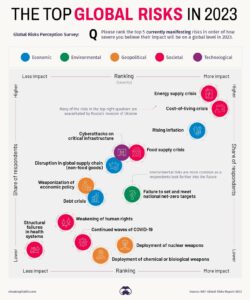This week my team discussed a buzz word that has been proven to be the #1 thing that the most successful teams have in common: Phycological Safety.
I didn’t know what it was either before I did some research.
Here are the resources that you and your team can talk through this week:
- Building a psychologically safe workplace – Ted x talk – 11 min
- Forbes – How Psychological Safety Actually Works
- HBR: High-Performing Teams Need Psychological Safety: Here’s How to Create It
My big takeaway: your team needs to be comfortable taking risks, failing, and talking through mistakes openly on the team without judgement.
Easier said than done, but I think we all could use some phycological safety on our teams!
Here are your Quick Hits:
Quote of the week:
After nearly dying of a heart attack:
“Damn it, I didn’t spend enough money,” – Jack Welch
The Art and Science of Spending Money
- Great article and eye opening as always from Morgan Housel.
- “Spending money to make you happy is hard if you’re already happy.”
- “Someone who works 100 hours a week and hates their job may have an urge to spend frivolously in an attempt to compensate for the misery of how their paycheck was earned.”
- When you see someone driving a nice car, you rarely think, “Wow, the guy driving that car is cool.” Instead, you think, “Wow, if I had that car people would think I’m cool.” Subconsciously or not, this is how people think.
- It’s common to find someone who bought their home in, say, 1974, for something like $60,000. Today it’s worth perhaps $350,000. The owners no doubt feel they have made the investment of their lives.
But those numbers above equate to an average annual return of 3.75%. Property taxes tend to average roughly 1%, so that brings our real return to 2.75% per year. Maintenance and repairs vary greatly, but spending 1% – 3% of your home’s value per year on upkeep should be expected.
Faith After the Pandemic: How COVID-19 Changed American Religion
- Interesting read here with some eye opening stats.
- “In summer 2020, only 13 percent of Americans reported attending in-person worship services. This rebounded to 27 percent by March 2022, but rates of worship attendance were still lower than they were before the pandemic.”
- “young adults (age 18 to 29), liberals and moderates, and Americans without a college degree were all more likely to never attend religious services before and after the pandemic.”
Powell Says Fed Will Not Become a ‘Climate Policy Maker’
- The Federal Reserve must avoid straying into political issues that aren’t directly related to its economic-management objectives to protect its ability to bring down inflation without interference from elected officials, said Chair Jerome Powell.
- “We are not, and will not be, a ‘climate policy maker,’” Mr. Powell said.
The Biggest Global Risks of 2023

